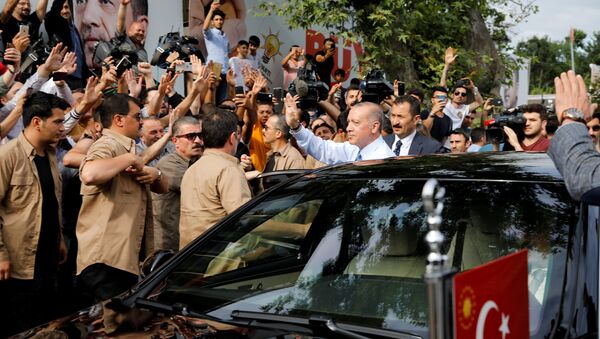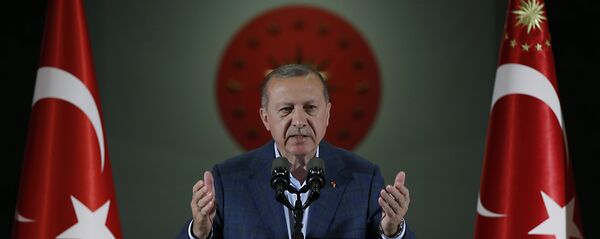"As the opposition in general, by which I mean HDP, CHP and Good Party, we could not have the majority of seats so this is going to make it difficult for us. Erdogan and MHP, they have the majority at the parliament… so now they will be controlling the government, the legislation as well as the judiciary, which is already under their control. So we are expecting challenging difficult times for the opposition in the country in the future," Ozsoy said.
The politician noted, however, that the opposition had managed to garner more seats in the parliament as a result of Sunday’s vote than the previous election.
READ MORE: Erdogan Tightens Grip in Turkey After Election Victory
Ozsoy noted that surpassing the 10-percent threshold once again was a major victory for the HDP, despite the fact that its presidential candidate has been detained on terrorism charges.
"It was quite difficult [for the HDP to pass the threshold] but despite all this pressure, as well as the embargo on the HDP in mainstream media, and the government using every public resource and mechanism against us, we still made it. I think it is a major victory. It is a success in that sense," Ozsoy pointed out.
Despite the fact that Demirtas has denied his affiliation with the group, Turkish prosecutors demanded a 142-year prison sentence for the HDP politician. Demirtas' trial is still underway.
Erdogan secured his victory in the presidential election with 52.6 percent of the vote. His main rival, CHP candidate Muharrem Ince, came second with 30.6 percent of the vote.
READ MORE: Erdogan's Unsurprising Win May Embolden Turkey's Anti-Kurdish Aggression
On Sunday, Turks elected both president and members of parliament. According to preliminary results, Erdogan’s Justice and Development Party (AKP) secured 42.6 percent of the ballots. The allied Nationalist Movement Party (MHP) won 11.1 percent, giving the People's Alliance the parliamentary majority of 53.7 percent. The Republican People's Party (CHP) got 22.6 percent of the votes. The HDP, with its 11.7 percent, reached the 10-percent threshold necessary to receive parliamentary mandates. The IYI (Good) Party and Felicity Party were at the bottom, receiving 10 percent and 1.3 percent of the vote, respectively.



